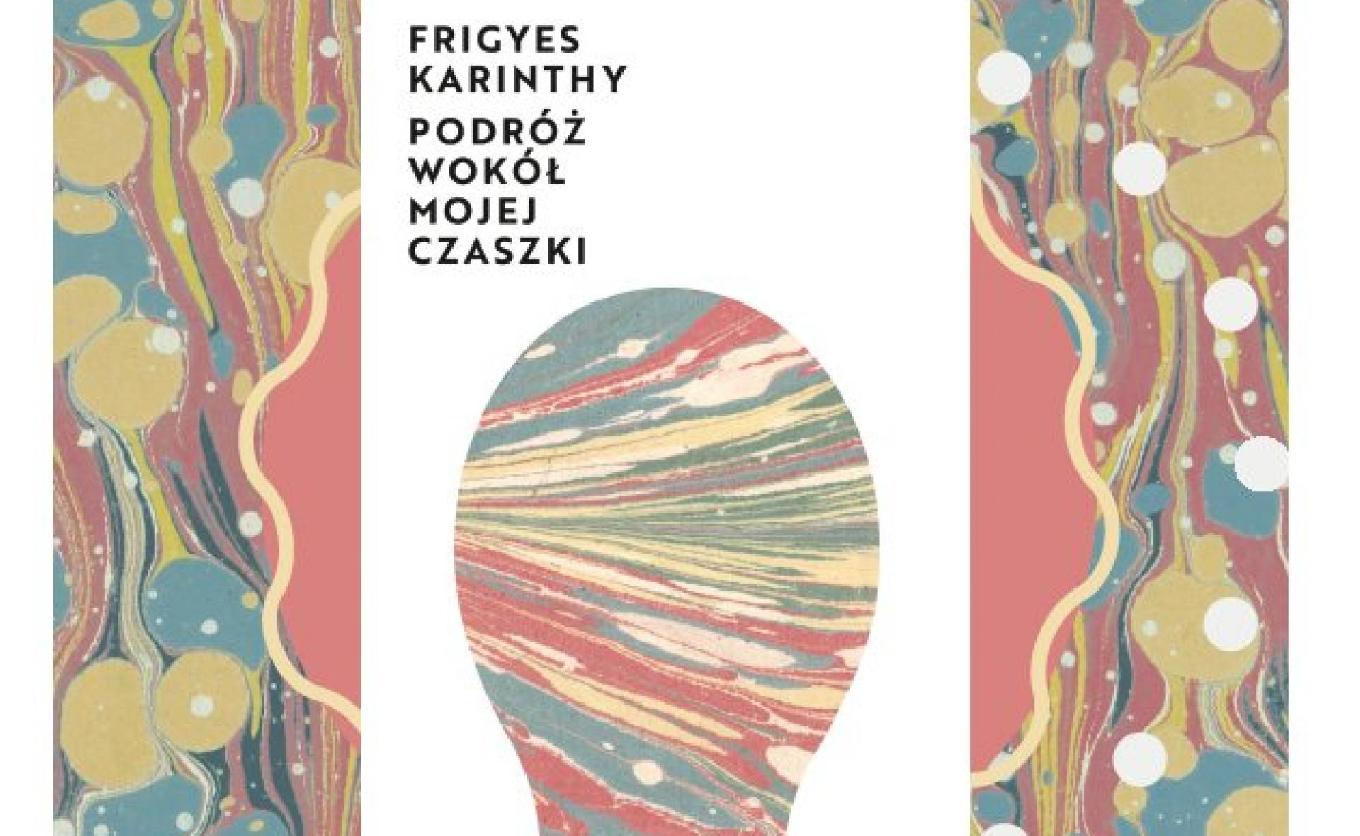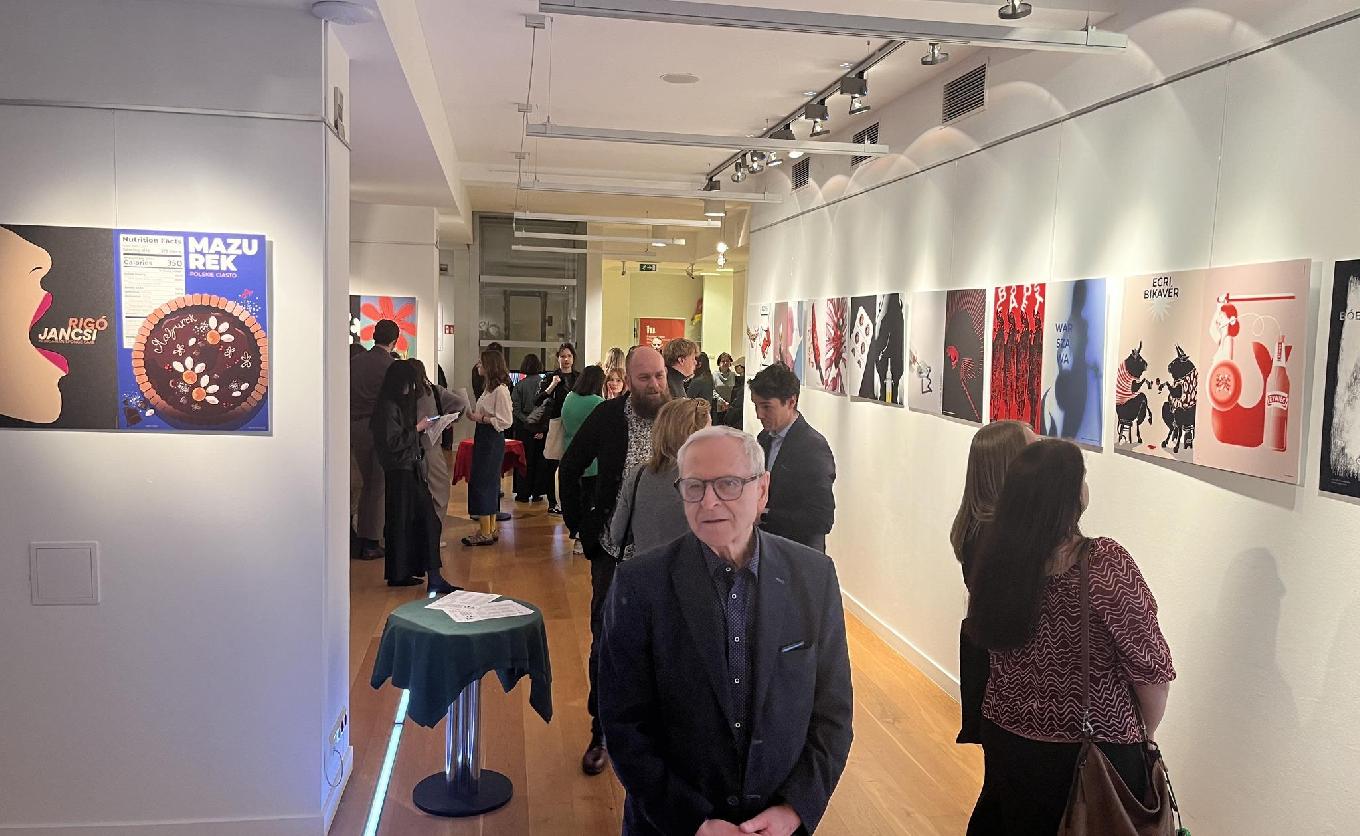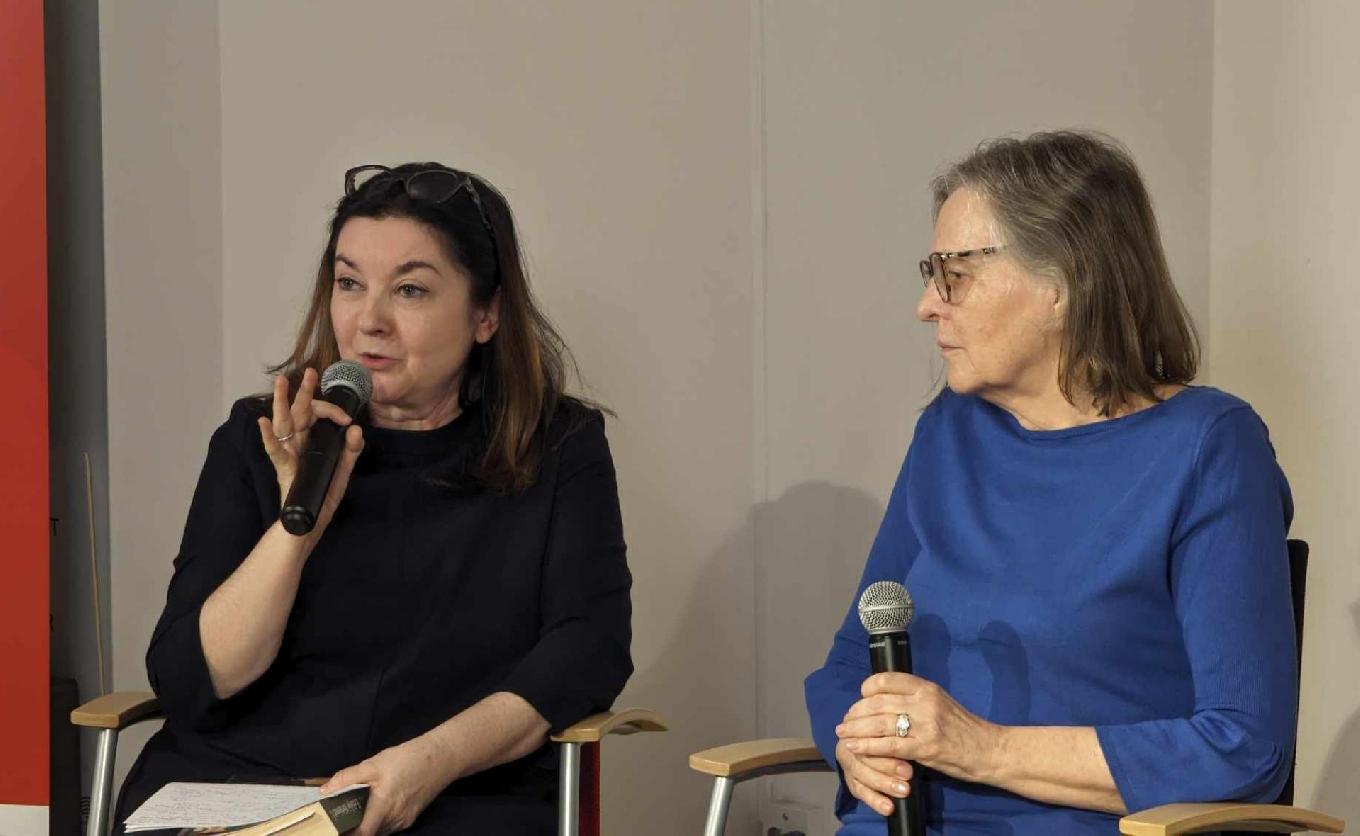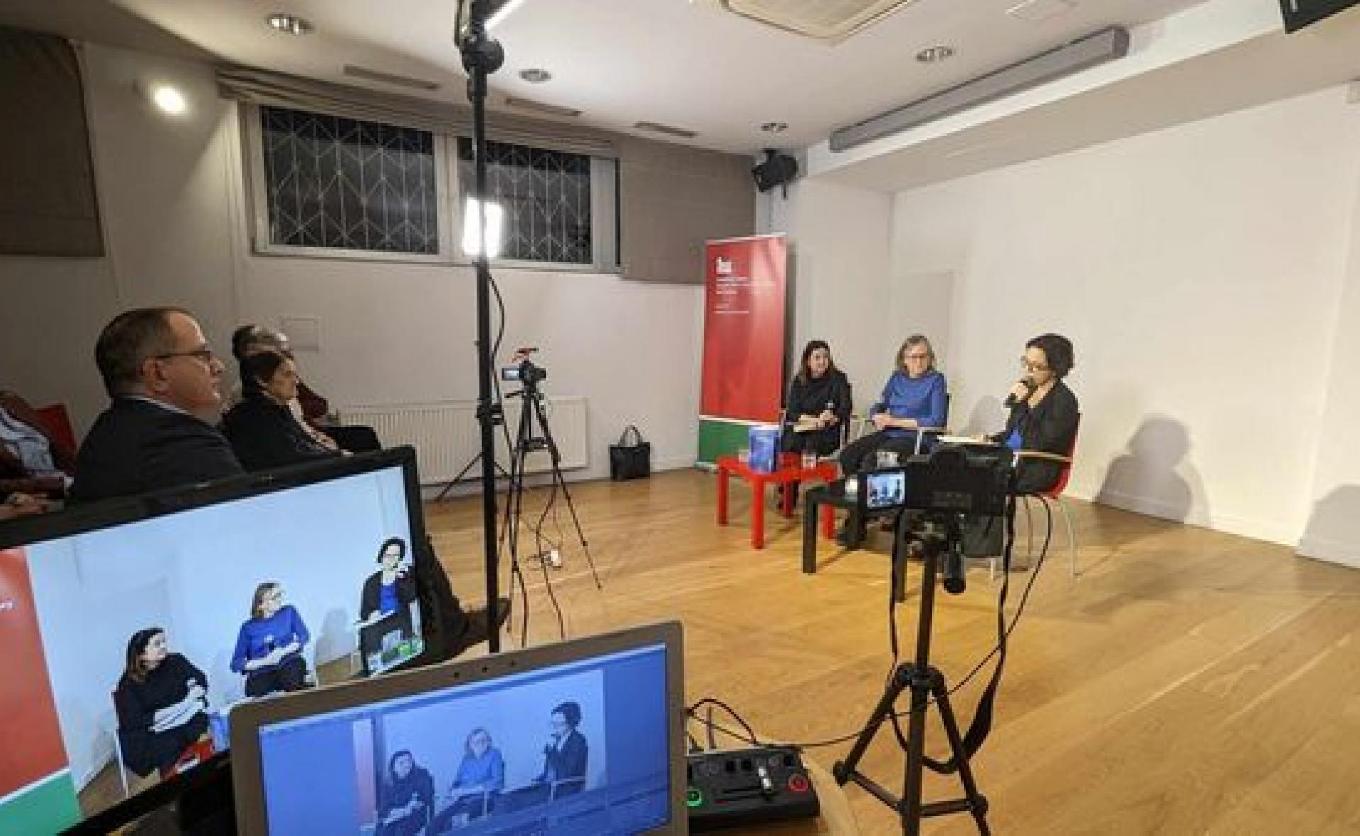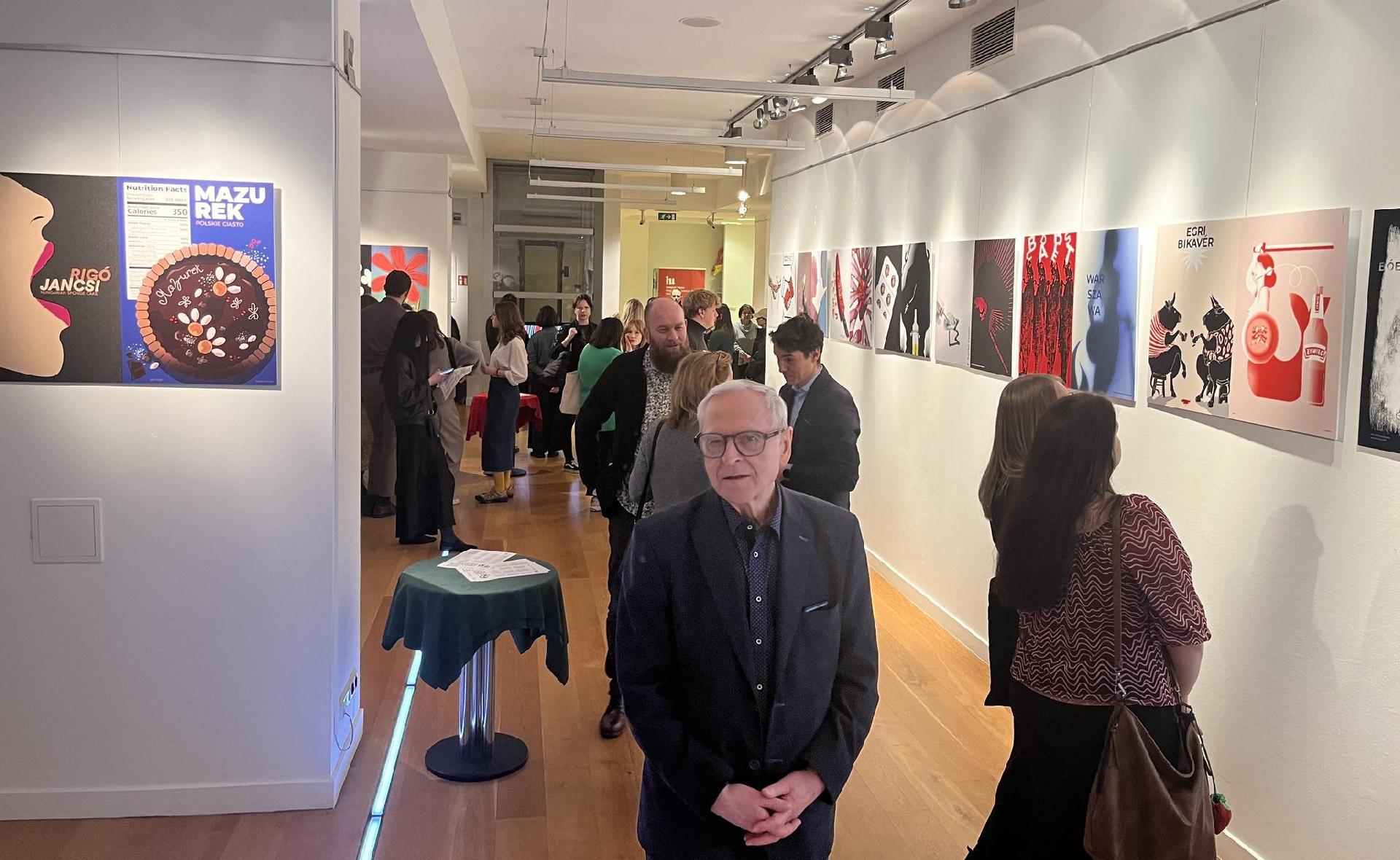
Exciting Hungarian cultural programmes across Poland
The Liszt Institute Warsaw has organized several impressive events around Poland recently. They celebrated the Hungarian Cuisine Day in Poznań, opened a poster exhibition on the occasion of the Polish-Hungarian Friendship Day and organized a study competition and film screening for secondary school students. Besides these, they also presented two films to the public and a recent Polish translation of Frigyes Karinthy's Journey Around My Skull and Miklós Bánffy's Transylvanian Story.
On 17 March 2024, the Hungarian Cuisine Day was organized for the 6th time in cooperation with the Liszt Institute Warsaw at the HP Park Hotel in Poznań. The programme offered the opportunity to taste Hungarian gastronomic products such as Jókai bean soup, chicken paprikash, Gundel pancakes and Hungarian white wines. The Classic Quartet provided music for the diners, playing popular melodies by Johannes Brahms, Vittorio Monti, Ferenc Lehár and Ferenc Liszt. The event also featured performances by the Piroska Folk Dance Ensemble, which celebrates its 45th anniversary this year.
On the occasion of the Polish-Hungarian Friendship Day on 21 March 2024, the Liszt Institute Warsaw and the Polish Institute Budapest opened the exhibition of the youngest generation of Polish and Hungarian poster artists, entitled " Hungarian-Polish Posters Up!". In the framework of the joint art project with the Hungarian Poster Society, nearly 130 students from four Polish and Hungarian art schools (Budapest Metropolitan University, Hungarian University of Fine Arts, Moholy-Nagy University of Art and Design, University of Pécs, Faculty of Art, Academy of Fine Arts in Krakow, Academy of Fine Arts in Łódź, Academy of Fine Arts in Warsaw, WIT Academy in Warsaw) participated under the guidance of eight teachers and professional mentors. The artists reflected on the expressions and concepts of the cultural and national identities of the two peoples through visual art, and presented famous figures of Poles and Hungarians in forms of posters. The opening, which took place in parallel in the two cultural institutions, was attended by around 100 people in Warsaw.
In keeping with traditions, in the small town of Białobrzegi, 80 km from Warsaw, the Hungarian teacher of the local grammar school, Krzysztof Winiarczyk, and the Liszt Institute Warsaw organized a study competition to celebrate the Hungarian-Polish Friendship Day. In the competition, students age 15-16 prepared a presentation on a pre-defined topic - Hungarian curiosities, gastronomy, Hungarian-Polish friendship - and presented it to the jury and their classmates. The three winners received a gift package provided by the Liszt Institute Warsaw.
On 20 March 2024, the documentary film Memory Will Be Preserved was screened at the Feliks Netz Salon in Katowice. The film, produced by the Grot Rowiecki Society in Olsztyn, presents the largest demonstration of sympathy for the 1956 Hungarian Revolution in Poland. Gábor Lagzi, the director of the Institute, welcomed the audience and underlined the importance of literature in the relations between the two nations. The film " Moscow Square " by Ferenc Török was screened on the occasion of the Hungarian-Polish Friendship Day in the local rest center for high school students and teachers of Janów Podlaski, a village on the Polish-Belorussian border, on 21 March 2024. After the screening, that attracted hundreds of people, Gábor Lagzi, the director of the institute, answered questions. On 27 March 2024, in connection with the Easter celebrations, Károly Eperjes' Hungarian Passion was shown in Hungarian with English subtitles in a closed online screening.
On 14 March, the Liszt Institute Warsaw also presented Frigyes Karinthy's book entitled Journey Around My Skull. The book was published in 2008, translated by Anna Górecka, and was republished in 2024 by PIW Publishing House in a revised version. To mark the occasion, the Institute organised a discussion with the translator, literary historian Elżbieta Cygielska, former lecturer at the Hungarian Department of Warsaw University, and literary critic Maciej Libich. During the discussion, the participants recalled the author's career, the circumstances of his literary activity and the content of the book.
At the end of last year, the first volume of Miklós Bánffy's Transylvanian Story trilogy was published, translated by Irena Makarewicz, with the support of the Liszt Institute Warsaw and with funding from the Felczak Institute. The nearly 650-page work is a chronicle of the society of Hungary and Transylvania in the early 20th century, before Trianon. At the presentation, the translator outlined the historical background of the novels, the Great War and its antecedents, but also stressed that the work has universal validity and very topical lessons. The sequel of the book is currently being translated.

